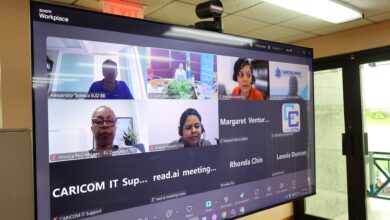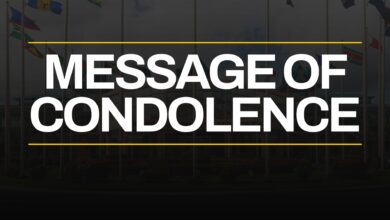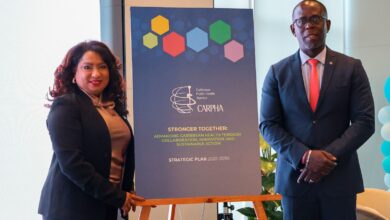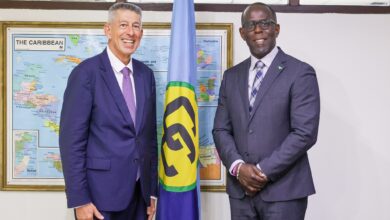(CARICOM Secretariat, Turkeyen, Greater Georgetown, Guyana) Diplomats from the Caribbean Community (CARICOM) were reminded today that during the course of their careers, successful advocacy and networking would be important as they sought to champion the various causes for their individual countries and the Region.
The Diplomats were informed of this by Professor E Nigel Harris, Vice Chancellor of the University of the West indies (UWI) as he addressed them at the start of a two week training programme that is being hosted by the CARICOM Secretariat in partnership with the Commonwealth Secretariat and the Institute for International Relations (IIR) at the St. Augustine Campus of the UWI. The Training Programme takes place 18-29 May and is being held in Guyana.
Professor Harris told the regional diplomats that advocacy for the Caribbean in terms of programmes, development, industries and its people would form a major part of their work.
“You also have to keep your ears to the ground for opportunities to promote the Region or for opportunities that may be advantageous to the Region in various ways – trade, politics, culture, educational opportunities, to name just a few….. The UWI, through the graduate programmes offered at the Institute of International Relations and our undergraduate programmes in International Relations offered through the Faculties of Social Sciences, has been preparing the “ground-work” for our representational corps. I am sure that some of you, if not most of you are graduates of our programmes, and we welcome your feedback on how we can improve those programmes to meet the changing needs of our diplomats. While the basic skills – and those include the so-called “soft skills,” may not change significantly, as global imperatives and poles of power shift, the nuances of the major issues that have to be addressed, may also change and you have to be sensitive to those,” the UWI Vice Chancellor told the diplomats.
He added that they will also need to equip themselves with “soft skills” such as socialising and networking, as they would find that such skills were always important in the diplomatic arena. He added that networking could be one of the most important skills and strategies that a diplomat could employ to ensure success.
“This group, with whom you will spend the next two weeks, discussing current issues, delving into reasons why and why not, preparing reports and taking them apart, reflecting on where the Caribbean Integration Movement has reached at this point in history, is the group with whom you will have the collective responsibility over the next two decades (or more) for your country and this Region’s presence in external arenas. Get to know each other. Maintain contact after this seminar. At another time in your lives, being able to call on fellow Ambassadors for assistance, advice or support may be the deciding factor in the future of your countries and this Region, “ professor Harris added.
He reminded the diplomats that in these stressful economic times the Caribbean had to do some skilful navigation in the international arena and they would be pressed into action in the work of the Region.





